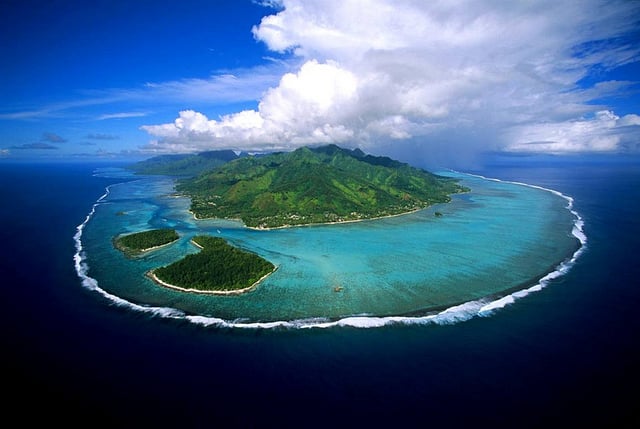
White sand beaches. Translucent blue lagoons dotted with over-water bungalows. Couples lounging under palm trees. Half-dressed natives draping flower necklaces over your head. These are some of the images I had in mind of Tahiti before going. And while you’ll encounter all of the above, these scenes only paint a small part of the picture.
On Tahiti itself I don’t go to the beach. Not once. I am actually surprised to find Tahiti feels more like a city than a tropical island. I spend time indulging in greasy ham and cheese crepes at the Les Roulottes in Vaiete Square, strolling through Le Meriden’s botanical gardens, and hiking and 4×4 touring the lush Maroto Valley.
While the mobile food trucks give me a glimpse into the local food culture and nightlife, the botanical gardens educate me on French Polynesia’s native plants. Moreover, the Maroto Valley allows me to get in touch with my adventurous side and also learn about ancient Polynesia through foraging for fruits and nuts and visiting sacred sites. Not once do I feel like I need to have a lover to enjoy myself or a white sand beach to occupy my time, as Tahiti is full of cultural and outdoor experiences.
Another surprise is how diverse each of the islands are. While Tahiti has the feel of a city with big-name resorts, a lively downtown and rush hour traffic, less than an hour away by plane Fakarava immerses me in a world of solitude, small family-run pensions and world-class diving.
In fact, Fakarava is a UNESCO World Biosphere home to French Polynesia’s largest pass, the northern pass of Garuae , a great diving spot known for its big marina fauna.
Heading a bit farther out, Raiatea, known as the “Sacred Island,” was the first island settled by the Polynesians and is home to Polynesia’s first royal marae. The island retains its native culture and feels almost untouched by tourism. You’ll only find a handful of small boutique hotels, and the island attracts travelers interested in adventure and exploration, as the only way to get to the center of the island is by hiking or kayaking down the Faaroa River. For something truly unique, hike to the top of Mount Temehani (792 meters; 2,598 feet) to find yourself in the only place in the world where you can find the rare Tiare Apetahi.
And on Tahaa, French Polynesia’s “Vanilla Island,” I’m introduced to a distinct atmosphere with offerings different from the rest. Over 80% of French Polynesia’s famous vanilla comes from this island, which is lush with vanilla plants, tropical fruits and colorful flowers. Here I can’t get enough of walking around the village, visiting vanilla plantations or trekking through the center of the island to immerse myself in tasty fruits, hibiscus and heliconia. To me, Tahaa has the feeling of what people believe Tahiti should be like, especially when you add in its many pearl farms and private island escapes.
My most rewarding discovery is finding out Tahiti is a great destination for solo travelers. Most of the islands are home to comfortable homestay-style pensions allowing guests to enjoy home-cooked meals with local families and comfortable yet basic accommodations (keep in mind, pensions come in different classes, some more luxurious than others).
Throughout my time island hopping I dine on street snacks, like kayaking to deserted motus, snorkeling unworldly coral garden, trekking through rainforest and swimming in translucent blue lagoons. When you’er on such a beautiful island, you should indulge in a little luxury.
While Tahiti is a romantic destination, and you will find plenty of palm trees, pink shells and white sand, this destination is much more complex than people realize. But, don’t let me tell you. See for yourself in the photos below.

Tahaa is full of otherworldly coral gardens. This photo is courtesy of Vahine Private Island Resort, one of the resort’s I stayed at that had its own onsite coral gardens.
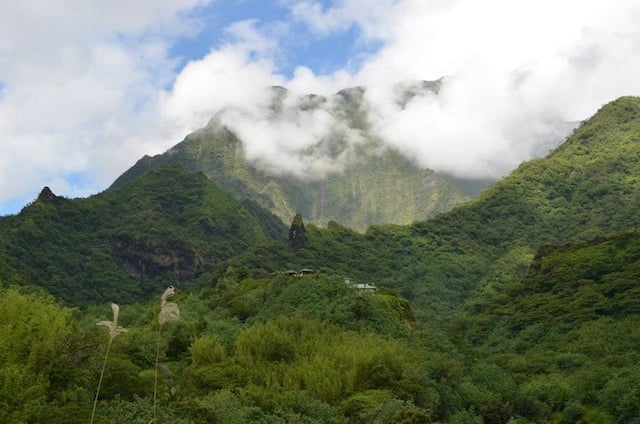
Tahiti’s lush Maroto Valley, where you can see Tahiti’s highest peak Mont Orohena at 2,241 meters (7,352 feet).
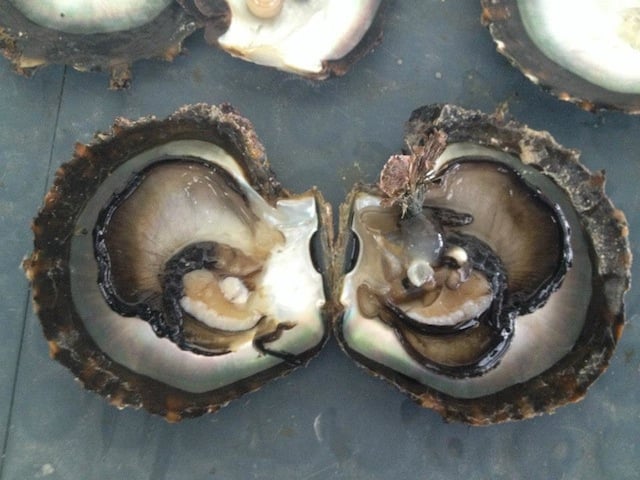
Fakarava is known for its opulent pearl farms, which are usually free to tour.
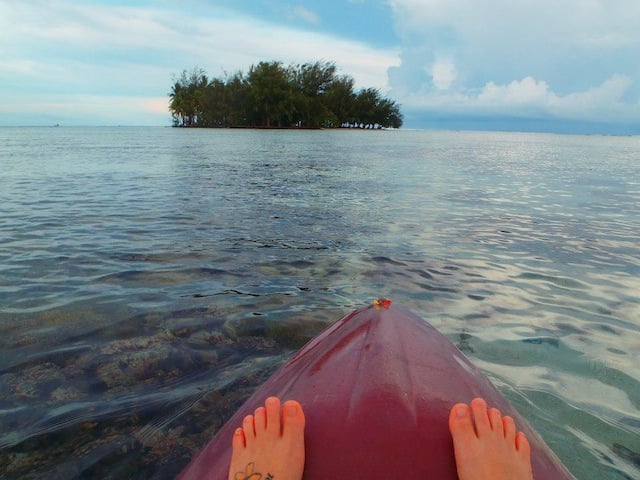
Raiatea is for adventurous explorers who love hiking through jungle and kayaking to secluded motus.
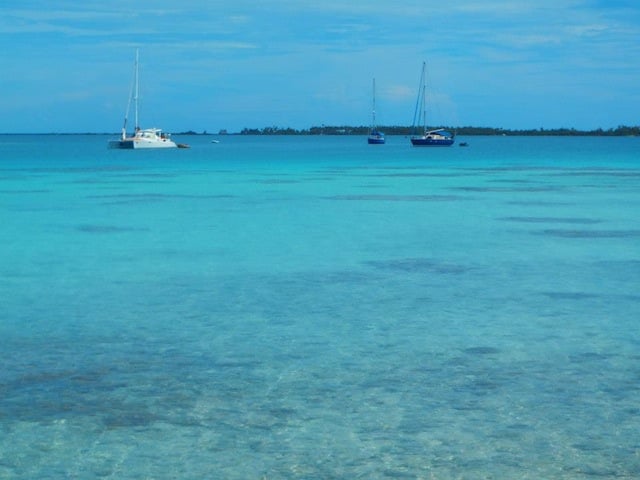
Fakarava is known for its exceptionally blue waters and excellent big marina fauna diving.
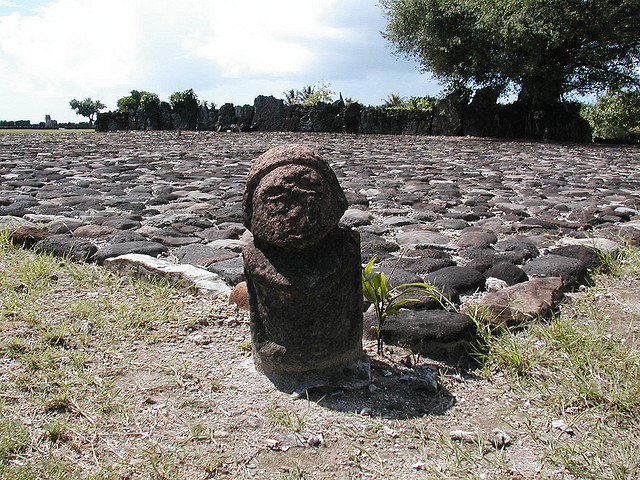
Raiatea is French Polynesia’s “Sacred Island” and is home to French Polynesia first royal marae. Photo courtesy of Sur la route.

Tahiti’s capital of Papeete has a city vibe. Photo courtesy of Sergio Calleja.

Tahaa is where over 80% of Tahiti’s famous vanilla comes from. The island is extremely lush and always smells of fresh flowers and sweet vanilla.

Jessica Festa is the editor of the travel sites Jessie on a Journey (http://jessieonajourney.com) and Epicure & Culture (http://epicureandculture.com). Along with blogging at We Blog The World, her byline has appeared in publications like Huffington Post, Gadling, Fodor’s, Travel + Escape, Matador, Viator, The Culture-Ist and many others. After getting her BA/MA in Communication from the State University of New York at Albany, she realized she wasn’t really to stop backpacking and made travel her full time job. Some of her most memorable experiences include studying abroad in Sydney, teaching English in Thailand, doing orphanage work in Ghana, hiking her way through South America and traveling solo through Europe. She has a passion for backpacking, adventure, hiking, wine and getting off the beaten path.








